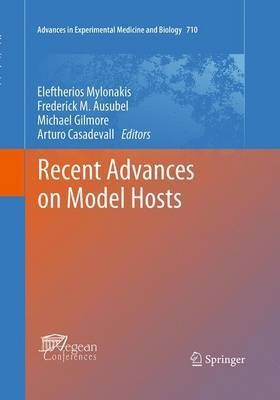Recent Advances on Model Hosts(English, Paperback, unknown)
Quick Overview
Product Price Comparison
Most studies of bacterial or fungal infectious diseases focus separately on the pathogenic microbe, the host response, or the characterization of therapeutic compounds. Compartmentalization of pathogenesis-related research into an analysis of the "pathogen", the "host," or the "antimicrobial compound" has largely been dictated by the lack of model systems in which all of these approaches can be used simultaneously, as well as by the traditional view that microbiology, immunology, and chemical biology and pharmacology are separate disciplines. An increasing number of workers from different fields have turned to insects, fish, worms and other model hosts as facile, ethically expedient, relatively simple, and inexpensive hosts to model a variety of human infectious diseases and to study host responses and innate immunity. Because many of these hosts are genetically tractable, they can be used in conjunction with an appropriate pathogen to facilitate the discovery of novel features of the host innate immune response. This book provides a series of reports from the 1st International Conference on Model Hosts. This first of its kind meeting focused on invertebrate, vertebrate and amoeboid systems used for the study of host-pathogen interactions, virulence and immunity, as well as on the relevance of these pathogenesis systems and mammalian models. Importantly, a common, fundamental set of molecular mechanisms is employed by a significant number of microbial pathogens against a widely divergent array of metazoan hosts. Moreover, the evolutionarily conserved immune responses of these model hosts have contributed important insights to our understanding of the innate immune response of mammals. This book provides a series of reports from the 1st International Conference on Model Hosts. This first of its kind meeting focused on invertebrate,vertebrate and amoeboid systems used for the study of host-pathogen interactions, virulence and immunity, as well as on the relevance of these pathogenesis systems and mammalian models. Importantly, a common, fundamental set of molecular mechanisms is employed by a significant number of microbial pathogens against a widely divergent array of metazoan hosts. Moreover, the evolutionarily conserved immune responses of these model hosts have contributed important insights to our understanding of the innate immune response of mammals.


